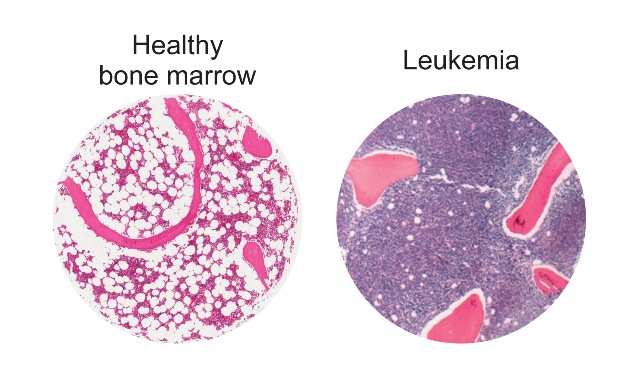Researchers at McMaster University have found that boosting fat cells located in the bone morrow suppressed cancerous leukemia cells.

But, in a surprise to the research team, the procedure also induced the regeneration of healthy blood cells at the same time. The study was conducted over the past three and half years and is published in the journal Nature Cell Biology.
The production of healthy red blood cells is critical for those with acute myeloid leukemia but is sometimes overlooked as conventional treatments focus on killing the leukemia cells alone.
A drug commonly used to moderate diabetes that induces fat cell production in the bone marrow was used and was found to help foster red blood cell production as well as suppress leukemic disease.
“The focus of chemotherapy and existing standard-of-care is on killing cancer cells but instead we took a completely different approach which changes the environment the cancer cells live in,” said Mick Bhatia, director and senior scientist with McMaster’s Stem Cell and Cancer Research Institute, who led the group that performed the study.
“This not only suppressed the ‘bad’ cancer cells but also bolstered the ‘good’ healthy cells allowing them to regenerate in the new drug-induced environment,” added Bhatia. “The fact that we can target one cell type in one tissue using an existing drug makes us excited about the possibilities of testing this in patients. We can envision this becoming a potential new therapeutic approach that can either be added to existing treatments or even replace others in the near future. The fact that this drug activates blood regeneration may provide benefits for those waiting for bone marrow transplants by activating their own healthy cells.”
Funding for the study came from the Canadian Cancer Society and the Marta and Owen Boris Foundation.








Comments
Want to discuss? Please read our Commenting Policy first.